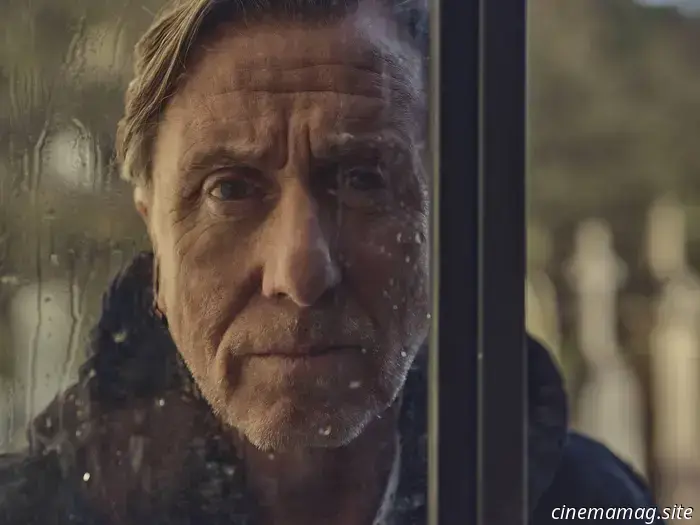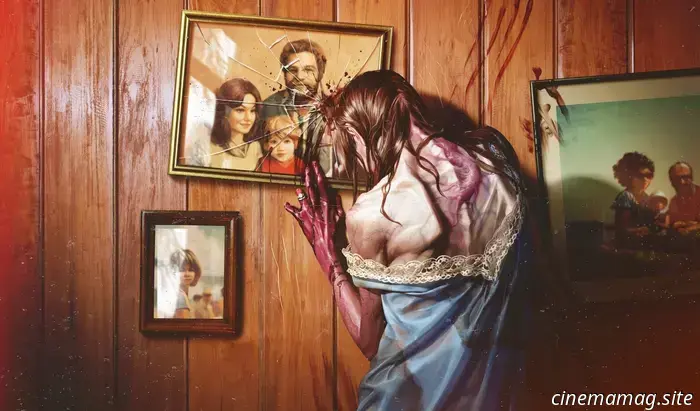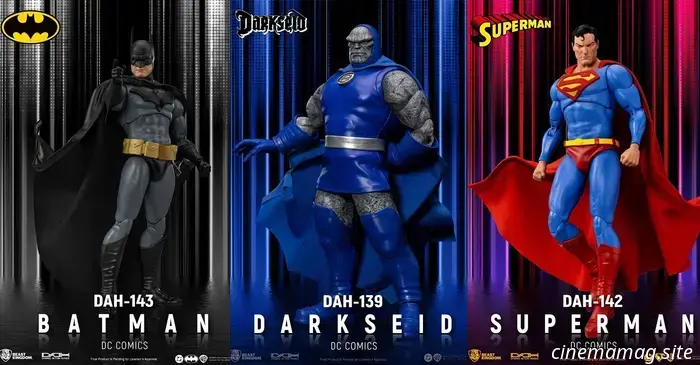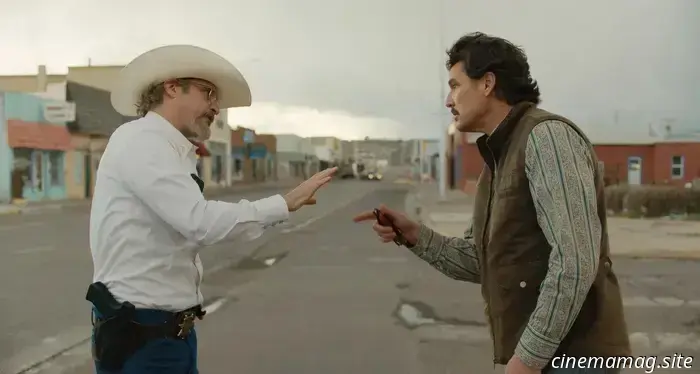
“I Enjoy Disorder”: Tim Roth Discusses Working with David Lynch, Quentin Tarantino, Mike Leigh, and Michael Haneke
In a back room of a hotel in Luxembourg, Tim Roth takes a sip of coffee, leans back, and asks me what else I have prepared. We have only been discussing for ten minutes, but the actor’s rapid-fire London banter (still unmistakably Dulwich, despite years spent in L.A.) has thrown me off guard. I quickly scan my notes, my gaze landing on “Sepp Blatter,” the disgraced former FIFA president portrayed by Roth in the widely criticized 2014 film United Passions. “Oh, my God,” the actor replies, “that was awful. But it helped get the kids through college without any student debt. And it worked!”
When evaluating Tim Roth’s impressive career, Blatter’s name would likely not appear in the introductory paragraphs. However, it seems oddly appropriate in the context of Roth's body of work: it represents the actor's diverse range of choices, as well as his willingness to accept a paycheck or two to continue pursuing his passion. This philosophy has led to one of the most varied careers of any British actor, as Roth remains, to my knowledge, the only individual to have collaborated with Michael Haneke, Robert Altman, and Tupac Shakur. Tarantino has cast him five times, Michel Franco three times, and David Lynch once. Indeed, a collection of united passions.
We met at the Luxembourg City Film Festival, where Roth’s latest film, Poison—a two-person drama featuring the Danish actress Trine Dyrholm—was having its national premiere. In this film, Roth and Dyrholm portray grieving, separated parents who encounter each other on the anniversary of their son’s death—a particularly poignant topic for Roth, who tragically lost his son Cormac to cancer in 2022.
For a few brief moments, edited for clarity here, we traversed four remarkable, turbulent decades in the industry.
The Film Stage: Considering your career and the numerous films you’ve made, it’s tough to know where to begin. One thing that stands out is your curiosity as an actor, your desire to collaborate with various types of filmmakers. What do you seek in a project?
Tim Roth: I don’t really have a rulebook. The main thing has always been… I enjoy chaos. I like the anarchy of it. There have always been filmmakers I wanted to work with, like Altman or Herzog or Haneke, but I’ve always been intrigued by new filmmakers. That’s been a constant for me since the very beginning, and I’ve stayed true to that. Generally, I don’t follow any specific rules. I enjoy the chaos.
Would you say you are drawn to a more serious style?
No, not really. I don’t have a playbook. I just go for it. Sometimes you find yourself doing films just to ensure you can pay the bills and get the kids through school. So you take roles in films that pay well to fund the ones that don't pay as much, which are often harder to make.
What attracted you to Poison?
It was a challenging and very complex subject presented in a uniquely difficult manner. The concept of having a real-time conversation between two characters in that scenario intrigued me. When I met Trine over Zoom—and Desiree, too—it was a done deal.
It’s a very contained film. Did you shoot it over a few days?
No, it took about four to five weeks in Luxembourg. We filmed it mostly in chronological order, starting the conversation at the beginning and progressing through.
You mentioned taking higher-paying jobs. It’s remarkable that you’re still part of the Marvel universe at this point—George Bush was still president when that Hulk film was released. Are you surprised by the longevity of that character?
I didn’t expect it at all. They just called and asked if I wanted to return for another round. I liked Tatiana [Maslany], so I thought it would be fun. It was Ed Norton when I first started, and then it became Mark Ruffalo. Mark’s hilarious, so we had a great time chatting on set.
The collaboration with Michel Franco has been such an interesting phase in your career. It must be refreshing to find that kind of partnership at this point.
I was on the [Un Certain Regard] jury in Cannes when he first won, which is how I discovered him. He surprised me with Después de Lucía. I just spoke with him a couple of weeks ago, and he’s working on our next project. So we’ll be able to collaborate for the fourth time. He’s back from Israel, where he did two films and a documentary, and now he’s home in Mexico writing.
What do you think makes your collaboration work so effectively?
He feels like an old-school filmmaker in a young man’s body. It’s reminiscent of Pasolini or Bertolucci—someone with a genuine cinematic mind but also a sense of urgency. It’s really enjoyable to work with him


Other articles
 Into the Dead: Our Darkest Days introduces a zombie epidemic on Steam Early Access.
The zombie survival game, Into the Dead: Our Darkest Days, has now launched on Steam Early Access. In this new survival experience, players will guide a small group of survivors in a Texas town infested with zombies. Throughout the early access period, players can expect to stay engaged as content updates are scheduled to be released regularly.
Into the Dead: Our Darkest Days introduces a zombie epidemic on Steam Early Access.
The zombie survival game, Into the Dead: Our Darkest Days, has now launched on Steam Early Access. In this new survival experience, players will guide a small group of survivors in a Texas town infested with zombies. Throughout the early access period, players can expect to stay engaged as content updates are scheduled to be released regularly.
 Beast Kingdom reveals figures from the Dynamic 8ction Heroes Series to celebrate DC Comics' 90th Anniversary.
Beast Kingdom has revealed plans to celebrate the 90th anniversary of DC Comics with a new series of DAH (Dynamic 8ction Heroes) action figures, which will include Batman, Superman, The Flash, Green Lantern, and Darkseid. These 8-inch figures are currently available for pre-order, and you can find promotional images and further details below… One […]
Beast Kingdom reveals figures from the Dynamic 8ction Heroes Series to celebrate DC Comics' 90th Anniversary.
Beast Kingdom has revealed plans to celebrate the 90th anniversary of DC Comics with a new series of DAH (Dynamic 8ction Heroes) action figures, which will include Batman, Superman, The Flash, Green Lantern, and Darkseid. These 8-inch figures are currently available for pre-order, and you can find promotional images and further details below… One […]
 Warp Films is developing a TV drama based on Threads, produced by the team behind Adolescence.
After the significant success of its Netflix series Adolescence, UK production house Warp Films is now aiming to frighten a new audience with a television adaptation of the BAFTA-winning apocalyptic drama Threads from 1984. Directed by Mick Jackson and written by Barry Hines, Threads offers a chilling portrayal of a nuclear strike on Britain by […]
Warp Films is developing a TV drama based on Threads, produced by the team behind Adolescence.
After the significant success of its Netflix series Adolescence, UK production house Warp Films is now aiming to frighten a new audience with a television adaptation of the BAFTA-winning apocalyptic drama Threads from 1984. Directed by Mick Jackson and written by Barry Hines, Threads offers a chilling portrayal of a nuclear strike on Britain by […]
 The Accident Review: A Witty Dark Comedy Featuring an Ingenious Structural Device
Note: This review was initially featured in our 2024 Slamdance coverage. The Accident can now be streamed on Fandor. It's refreshing when a film refrains from overstaying its welcome, which is something that writer-director Giuseppe Garau accomplishes in The Accident. Over the course of 65 minutes, Garau immerses viewers in the life of Marcella (Giulia Mazzarino), a single mother navigating her circumstances.
The Accident Review: A Witty Dark Comedy Featuring an Ingenious Structural Device
Note: This review was initially featured in our 2024 Slamdance coverage. The Accident can now be streamed on Fandor. It's refreshing when a film refrains from overstaying its welcome, which is something that writer-director Giuseppe Garau accomplishes in The Accident. Over the course of 65 minutes, Garau immerses viewers in the life of Marcella (Giulia Mazzarino), a single mother navigating her circumstances.
 Cannes Film Festival Reveals 2025 Program
In anticipation of the 78th Cannes Film Festival, scheduled for May 13 to 24, the program has been announced. This morning, Iris Knobloch, President of the Festival de Cannes, and Thierry Frémaux, General Delegate, disclosed the selection. Notable entries include Ari Aster's Eddington, Wes Anderson's The Phoenician Scheme, Kelly Reichardt's The Mastermind, and Joachim Trier's Sentimal.
Cannes Film Festival Reveals 2025 Program
In anticipation of the 78th Cannes Film Festival, scheduled for May 13 to 24, the program has been announced. This morning, Iris Knobloch, President of the Festival de Cannes, and Thierry Frémaux, General Delegate, disclosed the selection. Notable entries include Ari Aster's Eddington, Wes Anderson's The Phoenician Scheme, Kelly Reichardt's The Mastermind, and Joachim Trier's Sentimal.
 The director of A Quiet Place: Day One is set to lead the film adaptation of Death Stranding.
It appears that A24 and Kojima Productions have identified a director to oversee their feature film adaptation of Hideo Kojima’s celebrated video game Death Stranding. According to Deadline, Michael Sarnoski (Pig, A Quiet Place: Day One) is in discussions to both write and direct the project. The game was launched for the PlayStation 4 in 2019 and includes a cast that [...]
The director of A Quiet Place: Day One is set to lead the film adaptation of Death Stranding.
It appears that A24 and Kojima Productions have identified a director to oversee their feature film adaptation of Hideo Kojima’s celebrated video game Death Stranding. According to Deadline, Michael Sarnoski (Pig, A Quiet Place: Day One) is in discussions to both write and direct the project. The game was launched for the PlayStation 4 in 2019 and includes a cast that [...]
“I Enjoy Disorder”: Tim Roth Discusses Working with David Lynch, Quentin Tarantino, Mike Leigh, and Michael Haneke
In a secluded area of a hotel in Luxembourg, Tim Roth takes a sip of his coffee, reclines, and inquires about what else I have to discuss. Although we have only been conversing for ten minutes, there’s something about the actor’s rapid-fire London chatter (still unmistakably Dulwich, even after those bright years in L.A.) that has taken me by surprise. I hastily search through my
